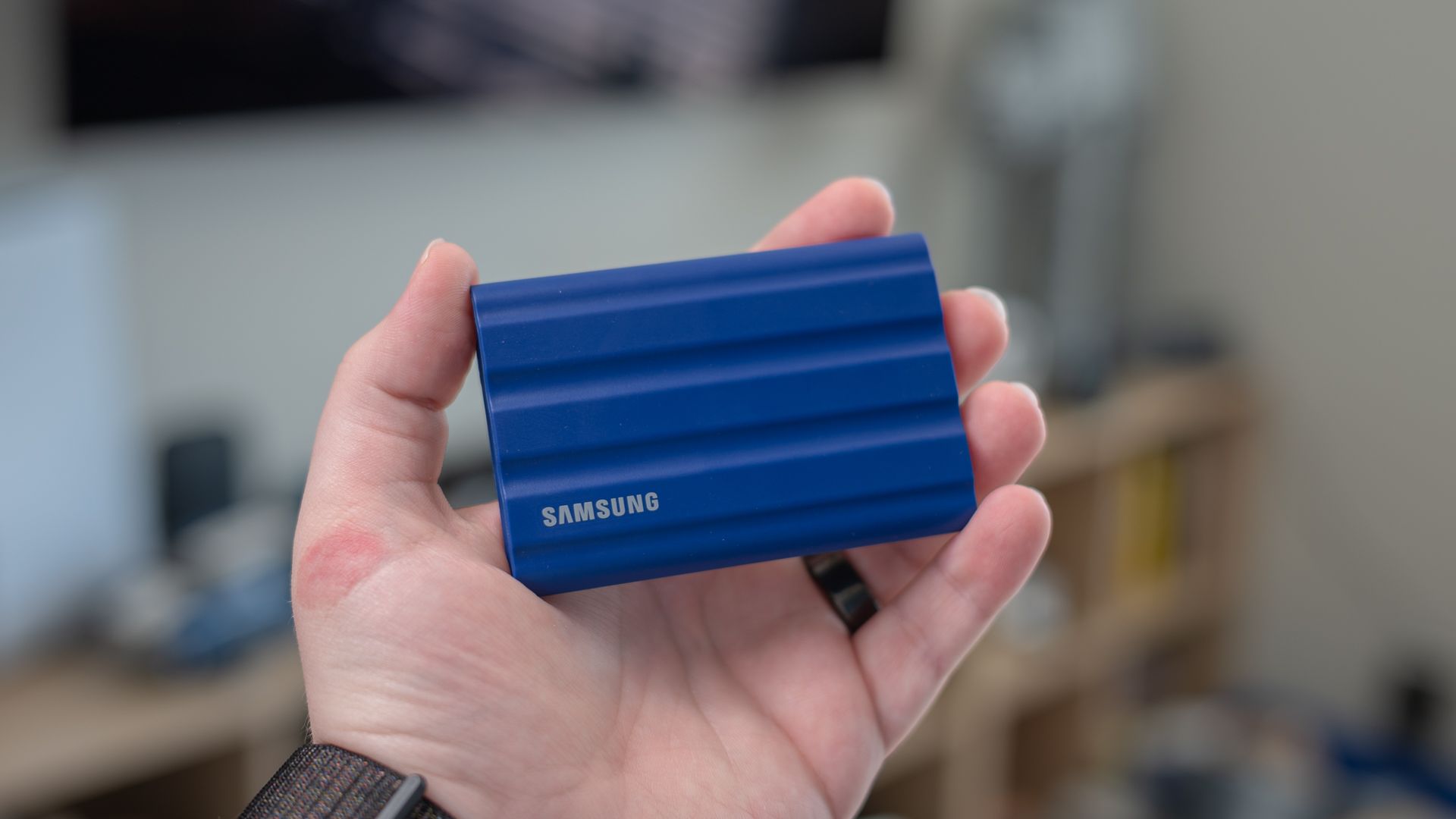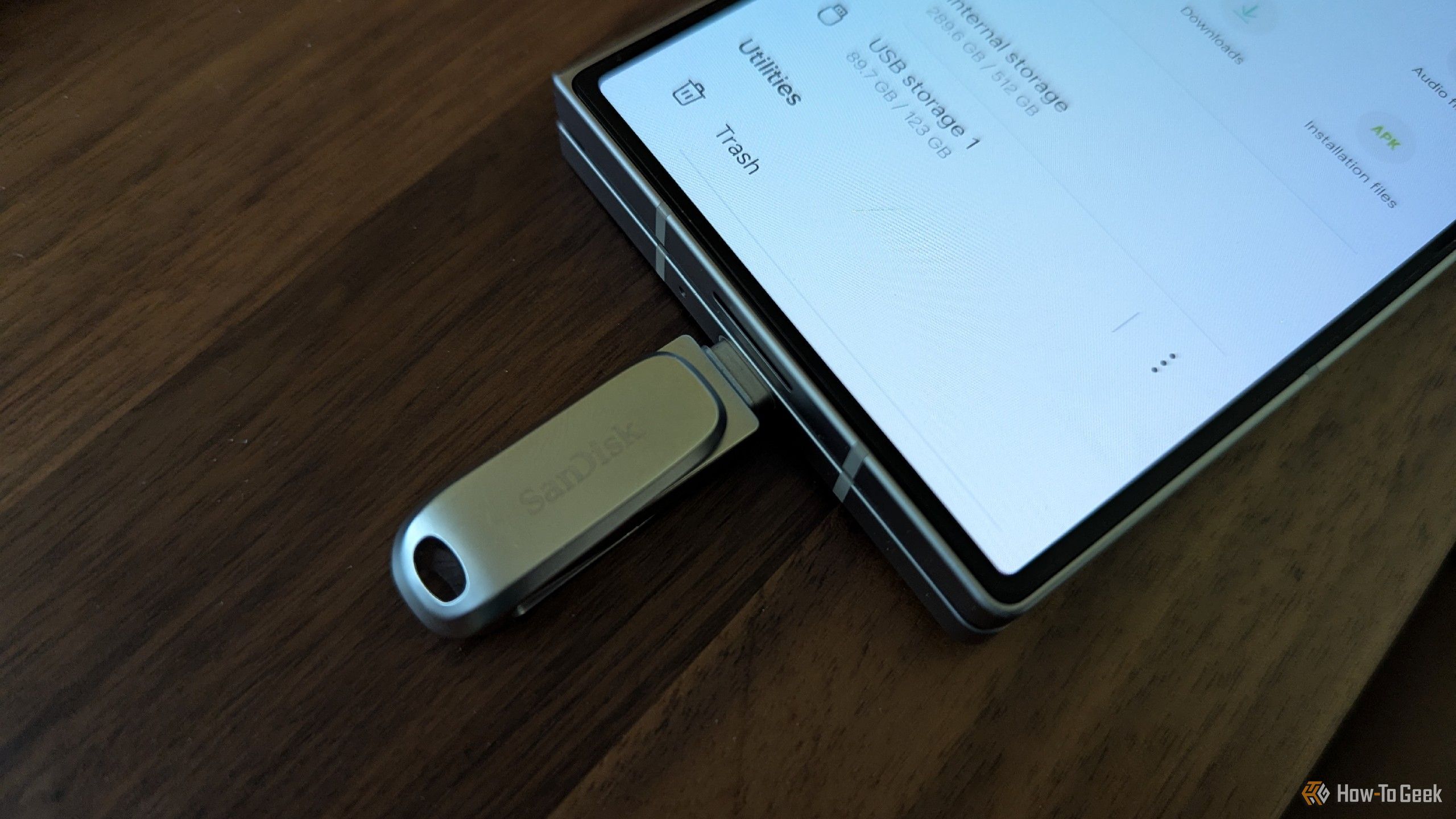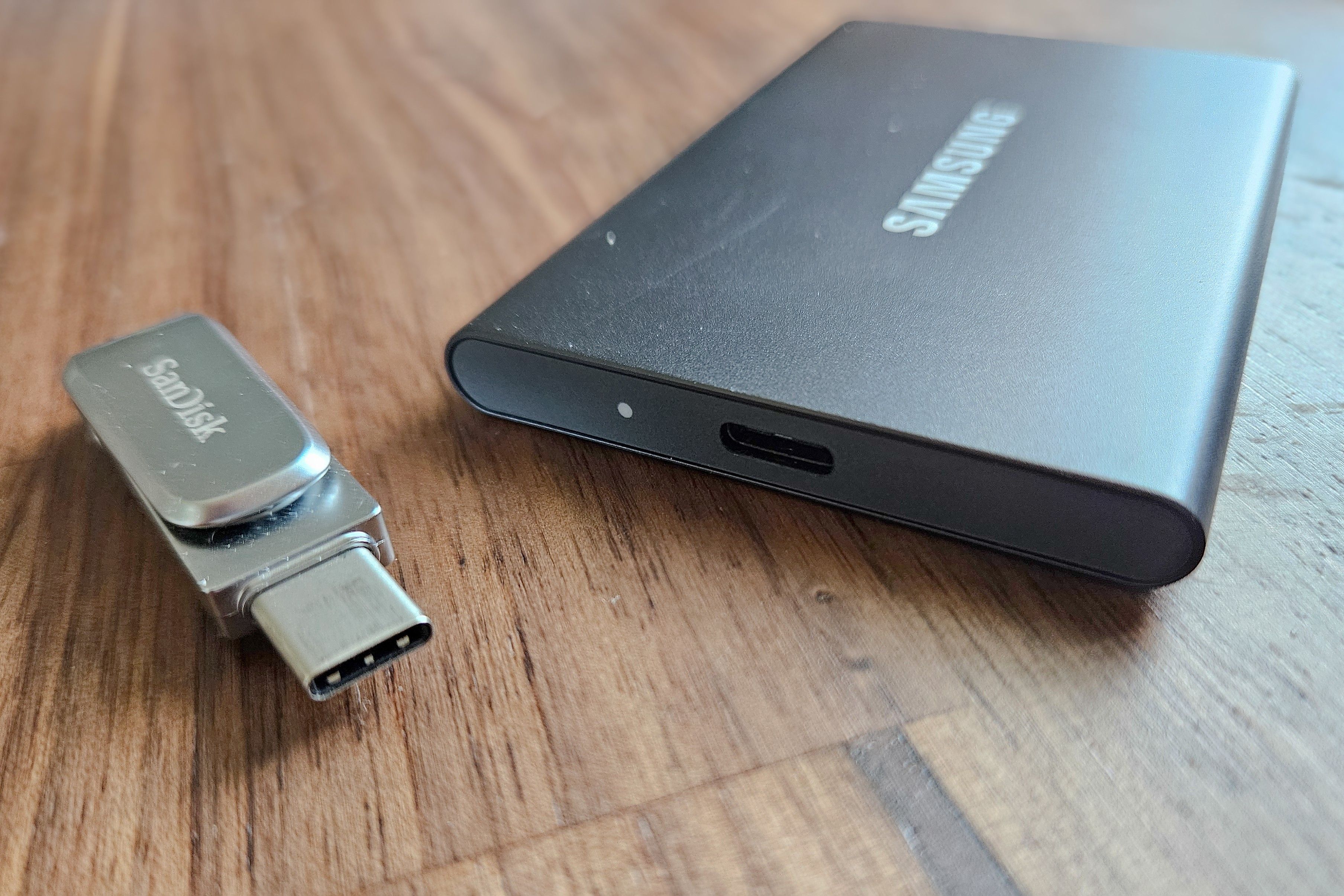Summary
- If you’re paying for cloud backups, you’re likely overpaying for storage. Physical storage options are cheaper in the long run.
- You own the files saved directly to your PC and phone. You rent cloud storage, giving up possession and control of your files in the process.
- Cloud storage can require a faster internet connection than you might otherwise need, further increasing your recurring costs.
I was originally excited for Dropbox and cloud storage when such services first came out. Now I see them more as a scam, and I’ve avoided them for years. What changed?
As time went on and the novelty write off, I increasingly encountered my own issues with cloud storage. Plus, I watched the way companies, the government, and hackers alike responded to a world with so much stored online. In the end, I wasn’t happy with the tradeoff.
You’re Overpaying for Storage
While the price of most things seems to have gone up, physical storage continues to get cheaper. Flash drives are tiny but hold a many files as an SSD for a fraction of the cost. For that matter, SSDs are cheap. I personally buy them sized at 512GB, since I have yet to own 1TB worth of stuff. Yet if I needed multiple TBs, that would be even more reason to invest in a physical drive.
Cloud storage requires you to pay monthly or annually for something that’s only a single upfront price when you purchase it yourself. Over the course of five years, 2TB of storage from iCloud or Dropbox costs $10 per month. A 2TB drive currently costs around $150. That means by the end of your second year, you’ve paid more for that storage than you would if you had bought your own drive. I have drives I purchased five years ago that are still going strong. Five years at $10 per month is over half a grand.
Unless you get a deal where cloud storage is being given away for free, you rarely save money by storing your data in the cloud.
You’re Going from Owning to Renting
I own the storage inside my phone (which is also my PC). I own the flash drives and external SSDs I’ve purchased over the years. If I were to set up my own NAS, I’d own that too. The hardware is paid for, and I’m the owner.
With cloud storage, it doesn’t matter whether you have a new account or have been paying for half your life—you don’t own the storage. The machines holding your files belong to a massive company, and you are just renting space.
You’re Giving Someone Else Possession and Control
The files saved to my phone are mine. They’re my documents. They’re my photos. I’ve bought thousands of songs (mostly Chillhop and Lo-Fi Girl, these days). I have folders filled with books and comics purchased from DRM-free sources. All of it is mine and in my possession. To access it, you need access to my device.

Related
5 Tricks I’ve Learned for Taking Control of My Data on Android
Smartphones may be tracking devices, but that doesn’t mean you have to give up all control.
If I were to sign up for cloud storage, I’d be handing over possession to someone else. To gain access to the files, you no longer need to come near me or my devices. You just need to go to the company that’s storing my stuff, and they get to decide who views it. We now live in a world where rather than individuals having their personal safe broken into one at a time, thieves target cloud companies and steal the contents of millions of safes at once.
Physical media may require more hands on effort, but at least I know when I read about another data breach, my files are not mixed up in it.
Another Paid Subscription Is Require to Access Your Files
The monthly cost of cloud storage isn’t the only math you need to factor into the equation. You have to also take into account the price of the internet necessary to access that storage. Sure, in today’s world, you’re likely paying for an internet connection already, but the speed is an open question. If your most intensive usage is streaming Netflix, then you don’t need an expensive plan to enjoy shows in 1080p.
But if you work regularly with files saved online, you’re going to want a fast connection, especially if these are multimedia files. It isn’t just the time it takes to download larger photos and videos that get you. It’s the upload speed that suddenly matters a great deal. And it’s not just the speed of your home Wi-Fi that you need to keep in mind. You may need fast mobile data as well.
I like keeping my dependencies light. I used a hotspot with an unlimited data from the Calyx Institute as my home internet connection for years, and part of what made that viable was my relatively light usage.
Your Files Are Hard to Transfer
Part of the promise of cloud storage is that your files are more accessible than ever. The reality is that they’re also harder to move around. It’s relatively quick and easy to transfer files between hard drives and computers you have your hands on. It’s not so easy to copy all of your files from Dropbox to Google Drive.
Cloud providers don’t want you to leave, so they don’t make it easy to switch between them. Third-party options exist, but you have to then trust a third-party app or service with access to your accounts. And once files are transferring, you’re dependent on the transfer speed of the servers talking to each other, rather than your own internet connection or hardware. If something goes wrong, you have limited options short of downloading the files in question and re-uploading them again.
Have I ever wished I still had a cloud backup? Sure. When I ditched my laptop for my phone, I had to transition my backup hard drives as well. I wasn’t as meticulous as I should have been and lost a folder that I needed but didn’t think about often.
Such things happen with physical documents too, and it’s not the end of the world. I would rather live with the possibility of loss than accept all the implications that come with trusting my files in the hands of companies that haven’t shown they care about our privacy all that much.


